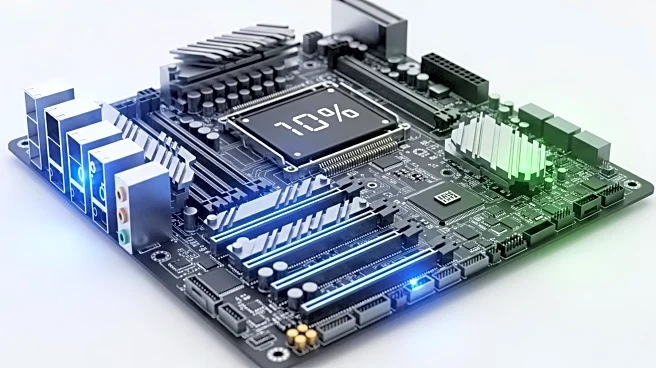What's Happening?
The Trump administration has acquired a 10% stake in Intel, making U.S. taxpayers the largest shareholders in the company. This move is part of a broader strategy to bolster national security and potentially gain financial returns. The administration has not disclosed plans for selling the shares or benefiting from dividends. This acquisition follows other recent government investments in private companies, such as a 'golden share' in Nippon Steel and a significant stake in MP Materials.
Why It's Important?
This investment represents a significant shift in U.S. industrial policy, potentially expanding presidential authority in the business sector. The move could lead to financial gains for the U.S. government and create more jobs domestically. However, it also raises concerns about government intervention in the free market and the potential for increased regulation. The decision could set a precedent for future government investments in private companies, impacting industries and market dynamics.
What's Next?
The administration may pursue similar investments in other industries, potentially forming the basis of a sovereign wealth fund. This could provide U.S. taxpayers with direct stakes in companies, although the long-term implications remain uncertain. The government will need to navigate potential regulatory challenges and market reactions as it continues to explore this strategy.









